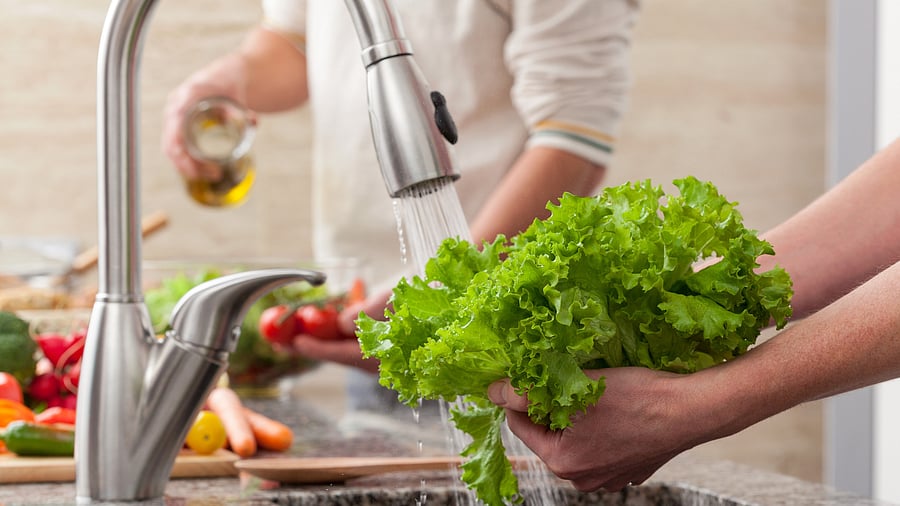
Washing fresh vegetables for a salad with an alive oil Artificial colours.
Credit: iStock Photo
The news about the high concentration of metal in vegetables sold in Bengaluru has raised concerns about their consumption.
Environmental Management and Policy Research Institute (EMPRI) collected 400 samples from several supermarkets and retail stores in the city, to test the produce for heavy metals such as iron, cadmium, lead, and nickel. They ran tests on vegetables such as brinjal, tomato, capsicum, bean, carrot, green chilly, onion, potato, spinach and coriander and found that the level of contamination exceeded the permissible limits set by the Food and Agriculture Organisation (FAO). Such contamination is due to the use of wastewater to grow vegetables, the EMPRI study states.
Metrolife asked food experts for tips to counter the metal toxicity and ensure the vegetables are safe to consume.
Professor Shamshad Begum, department of food science and nutrition at GKVK, says that cleaning the vegetables two to three times with portable water is ideal. “After this, soak the vegetables in 2% salt solution and wash it again,” she adds.
Another food expert agrees that thoroughly washing vegetables should help remove external metal contamination. “Cooking with a lot of water can help the metal traces inside the vegetable leach out, making it less toxic,” he says.
What to consume
The effect of metal contamination can be combated by consuming fruits and vegetables high in antioxidants, say experts. This includes Vitamin C-rich fruits like gooseberries, oranges, lemons, and strawberries, says Shamshad Begum. “Consuming food like tomatoes and blueberries can counteract the effects of heavy metal contamination, and will help reduce free radicals in our bodies,” she says. Free radicals are unstable atoms that can damage cells, and cause illnesses and ageing.
If free radicals continue to stay in one’s body, it could increase the risk on cancer, she adds. “When preparing baby food, reduce the usage of sweet potatoes, potatoes and soya beans, which often have high cadmium and lead levels,” she says.
When preparing fruit juices, blanch the fruits before using them. “Even when making salads, make sure you blanch the vegetables,” she advises.